It’s a moment every pool owner dreads. You head out for a swim or your regular maintenance check and notice the water level is lower than it should be. Maybe it’s just an inch or two, or maybe you’re starting to see parts of your skimmer exposed that normally stay underwater. Before you spiral into panic thinking your pool is leaking, take a deep breath.
Not all water loss means you’ve sprung a leak. In fact, most cases of gradual water loss are completely normal and expected. So, how do you tell the difference between harmless evaporation and a costly leak?
At Main Street Pool & Spa in Uxbridge, Ontario, we’ve helped thousands of pool owners troubleshoot these exact concerns. This comprehensive guide will walk you through all the common causes of water loss, how to properly diagnose a pool leak, what signs to watch for, and when it’s time to call in the pros.
Understanding Normal Water Loss
1. Evaporation: A Natural Process
Water evaporates from every body of water. Your pool is no exception. Depending on the season, temperature, humidity, and wind exposure, you can expect to lose anywhere from 1/4 inch to 2 inches of water per week through evaporation alone.
In Ontario, this is especially common during the summer. July and August can bring high humidity paired with blazing sun. If your pool is uncovered and exposed to wind, water evaporates even faster. You might notice higher evaporation rates if:
- You use a heater regularly
- The water surface area is large
- Your backyard gets a lot of direct sunlight
- You have water features (e.g., fountains, waterfalls)
- The pool is used frequently during the day
Pro Tip: Use a solar cover to drastically reduce water loss from evaporation. Even a basic floating cover can make a noticeable difference.
2. Splash-Out and Backwashing
Another common cause of water loss is simple splashing. Kids cannonballing off the deck, adults doing laps, dogs diving for toys — it all adds up.
In addition, every time you backwash your pool filter, especially sand and DE filters, you’re pushing gallons of water out of the pool system. If you're backwashing frequently or for longer than needed, you might lose more water than you think.
Tip: Track when you backwash and how much water you refill each week. This will give you a baseline for expected water loss.
3. Pool Usage
Busy pools lose more water. That’s the reality. Between evaporation, splash-out, and even people exiting the pool dripping wet, your water levels will drop more quickly during peak season. If you’re hosting backyard parties, swimming daily, or running jets and waterfalls for hours, don’t be surprised if you see more frequent refills.
When Should You Worry About a Leak?
Now that we’ve covered the normal reasons a pool loses water, it’s time to talk about leaks. A leak can be a minor inconvenience or a major issue, depending on where it is and how long it goes undetected.
Common Signs of a Pool Leak:
- Water level drops more than 2 inches per week
- You’re constantly topping off the pool
- Soggy spots or erosion around the pool deck or yard
- Cracks in the pool shell or surrounding concrete
- Air bubbles in the return jets
- Increased chemical use or imbalanced water chemistry
- Pump losing prime or struggling to pull water
- Higher than normal water bills
- Visible leaks around fittings, equipment, or pipes
How to Test for a Leak: The Bucket Test
Before calling in the pros, try this reliable DIY test to determine whether you’re dealing with evaporation or a real leak.
Bucket Test Instructions:
- Fill your pool to the normal level.
- Take a 5-gallon plastic bucket and fill it with water to match the pool water level when the bucket is placed on a pool step (weigh it down if needed).
- Mark the water levels on both the inside and outside of the bucket using a waterproof marker or duct tape.
- Turn off any waterfalls, fountains, or features.
- Wait 24 to 48 hours. Avoid swimming or adding water during this time.
- Compare the two levels.
If both water levels have dropped by the same amount, it's likely evaporation.
If the pool water has dropped more than the bucket water, you likely have a leak.

Advanced Leak Detection: What the Pros Look For
At Main Street Pool & Spa, we use specialized tools and techniques to detect leaks, even the tricky ones that hide underground or behind tile. Here are the top places we inspect when you call us for a leak concern.
1. Plumbing System
Leaks in the suction or return lines are among the most common and hardest to spot. These underground pipes can develop cracks due to:
- Freezing and thawing cycles (especially in Ontario)
- Ground movement or poor compaction
- Root intrusion
- Poor installation or aging materials
We perform pressure testing and line isolation to identify the exact location of plumbing leaks.
2. Skimmer
The skimmer is a frequent leak point. Over time, the plastic around the skimmer throat can warp or crack. If the leak seems to stop once the water falls below the skimmer level, it's a red flag that this may be the issue.
We inspect the skimmer body, faceplate gasket, and the plumbing connections below it.
3. Main Drain and Returns
Leaks around the main drain are less common but not impossible. The drain fitting can loosen, crack, or have faulty plumbing connections. Return lines are also key areas where leaks can form, especially at joints or elbows.
4. Lights and Niches
Pool lights are installed in a niche with a conduit leading back to the equipment pad. If the seal around the niche or conduit fails, water can seep out undetected.
This type of leak is especially problematic in concrete pools. We check light fixtures thoroughly and use dye testing to identify flow.
5. Vinyl Liner Tears or Separations
For vinyl liner pools, tears, punctures, or seam separations are common leak causes. These might be tiny — the size of a coin — but can still lead to significant water loss.
We use dye testing and visual inspection to locate leaks and offer patching or liner replacement solutions.
6. Structural Cracks
Concrete (gunite) and fibreglass pools can develop hairline cracks over time due to shifting ground or improper installation. If these cracks reach through the shell, they can leak water.
We inspect tile lines, steps, and transitions where structural cracks often form.
Diagnosing a Leak in Ontario: What to Consider
Freeze and Thaw Cycles
In Ontario, our winters are no joke. The freezing and thawing that happens throughout the season puts serious stress on pool materials, especially concrete and plumbing lines. Expansion of frozen water can cause cracks or shift underground pipes.
Pool Opening and Closing Mistakes
Improper closing techniques, like not fully blowing out lines or leaving water in vulnerable places, can create damage that only reveals itself in the spring.
When we open pools each spring in Uxbridge, we often find cracks around fittings or minor liner damage that occurred during the winter.
Local Water Costs and Impact
Municipal water in Ontario isn’t free — and it can be expensive to top up your pool week after week. If you’re losing 1 inch of water per day in a 16 x 32 pool, that’s over 300 litres per day. This can add up to thousands of litres each month, affecting your utility bill and water usage restrictions.
DIY Leak Repair: What You Can Try
If you’re comfortable tackling minor pool repairs, here are a few things you can attempt:
Patch Kits
Vinyl patch kits are easy to find and work underwater. Use them to repair visible holes or tears in your liner.
Epoxy Putty
This is a go-to solution for sealing around light fixtures, skimmer cracks, or fittings in concrete and fibreglass pools.
Replace Gaskets or Fittings
If your leak is coming from the skimmer faceplate, light ring, or return jet, replacing the gasket may solve the problem.
Reminder: If you’re not 100% confident or the leak is not visible, it’s best to contact a professional.
When to Call the Pros at Main Street Pool & Spa
If your DIY efforts don’t stop the leak or if you suspect something structural or underground, call our team. We offer:
- Professional leak detection
- Pressure testing and pipe inspection
- Skimmer and plumbing repairs
- Liner patches and full replacements
- Advice on preventative maintenance
You can trust that we’ll treat your pool as if it were our own — no upselling, no unnecessary repairs, just honest help.
How to Prevent Leaks Before They Start
An ounce of prevention is worth a pound of repairs. Here’s how to reduce the risk of leaks in the first place:
1. Winterize Properly
Always close your pool before freezing temperatures hit. Blow out all lines, plug returns, and add pool-safe antifreeze as needed. We also always recommend a safety cover to contain more water for an easier spring opening.

2. Inspect Regularly
Keep an eye on fittings, seals, and your liner. Minor damage caught early is much easier (and cheaper) to fix.
3. Schedule Professional Openings and Closings
Our team at Main Street Pool & Spa can winterize and open your pool professionally, preventing costly oversights.
4. Don’t Ignore Warning Signs
If your water bill jumps or you find yourself topping up your pool every other day, don’t wait. Early detection saves money and protects your pool investment.
Frequently Asked Questions
Q: Can a leak affect water chemistry?
Yes. A leaking pool constantly draws in new water, which dilutes your chemicals. You’ll notice higher chlorine demand and unbalanced pH.
Q: Is it safe to swim if my pool is leaking?
If the water level is safe and the water is clean, yes. But prolonged leaking can damage equipment and structural integrity, so fix it quickly.
Q: Do leaks get worse over time?
Almost always. Small leaks become bigger ones if left untreated. Water can erode soil, crack concrete, or undermine your pool base.

Trust the Experts at Main Street Pool & Spa
You don’t have to guess whether your pool is leaking or stress over what to do next. Our friendly, experienced staff is here to help — whether it’s a quick patch, a full inspection, or a professional leak repair.
Visit us in person, give us a call, or book a service online. We’re proud to be Uxbridge’s trusted pool experts, serving homeowners across Durham Region and beyond.
📍 37 Main Street North, Uxbridge, Ontario
📞 905-862-4040
Article based on "My Swimming Pool is Losing Water: Is It Evaporation or a Leak?" by the Latham Editorial Team
Artwork provided by Latham


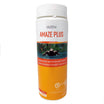


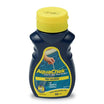
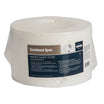
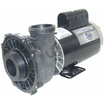

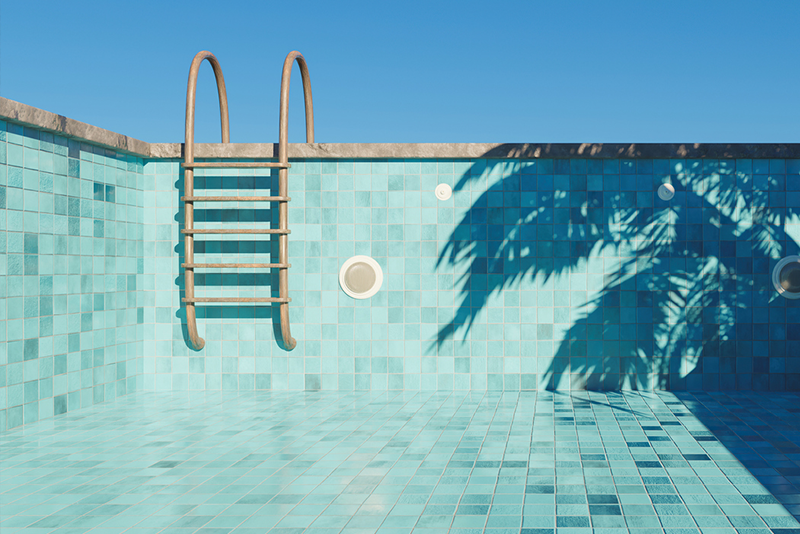
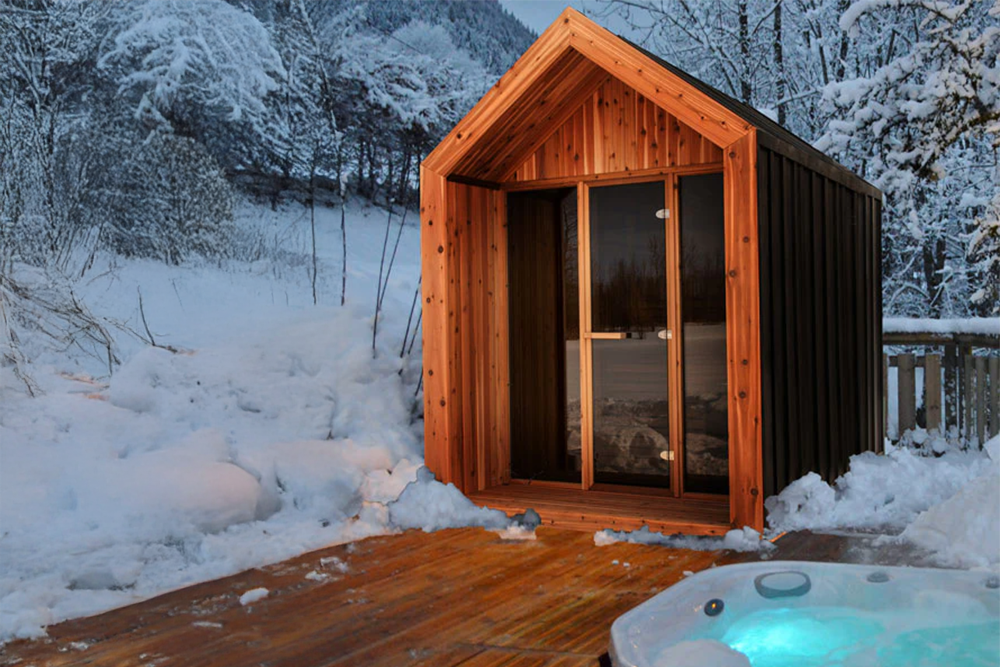

Leave a comment
This site is protected by hCaptcha and the hCaptcha Privacy Policy and Terms of Service apply.